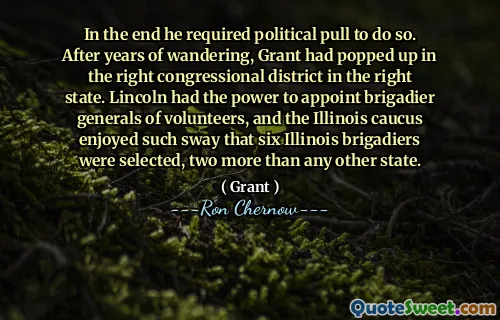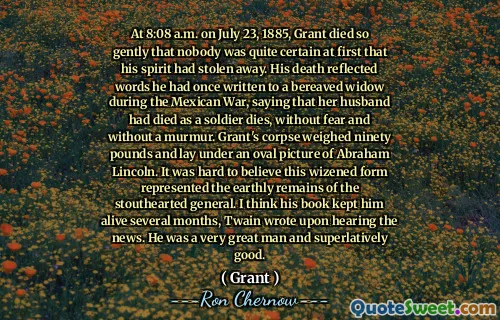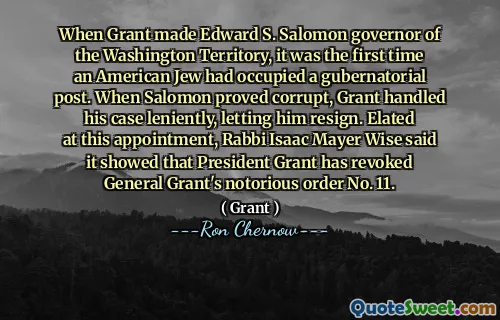
In the end he required political pull to do so. After years of wandering, Grant had popped up in the right congressional district in the right state. Lincoln had the power to appoint brigadier generals of volunteers, and the Illinois caucus enjoyed such sway that six Illinois brigadiers were selected, two more than any other state.
This quote offers a nuanced insight into the intersection of military leadership and political influence during a pivotal moment in American history. Grant's journey, characterized as one of 'wandering,' underscores the often unpredictable and contingent nature of career advancement, especially within the military sphere during the Civil War era. His emergence "in the right congressional district in the right state" highlights how geographical and political contexts can significantly influence an individual's opportunities.
Moreover, the quote sheds light on the political dynamics under Lincoln's administration, where presidential power and regional political clout coalesced to shape military appointments. Lincoln's authority to appoint brigadier generals, coupled with the influence exerted by the Illinois caucus, paints a picture of how political patronage and regional loyalties were critical in shaping command structures. This underscores a broader theme of the period: the blending of politics and military affairs was instrumental in shaping not only leadership appointments but also the strategic directions of the Union forces.
From a reflective standpoint, the quote provokes contemplation on how merit, opportunity, and political maneuvering intertwine in leadership ascension. For Grant, it was not merely his military capability that propelled him, but also the fortunate alignment with political necessity and regional influence. It invites readers to consider the complex layers behind historical figures' rise, where personal agency intersects with larger systemic forces.
This passage, within the context of Ron Chernow's biography of Grant, enriches our understanding of the general's path to prominence. It challenges simplistic narratives of heroism driven solely by battlefield prowess, instead presenting a more textured narrative that acknowledges the indispensable role of political environment and network. In this light, Grant's story resonates as a testament to the multifaceted nature of leadership and the importance of navigating political realities alongside personal ambition and competence.









